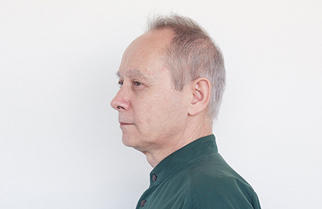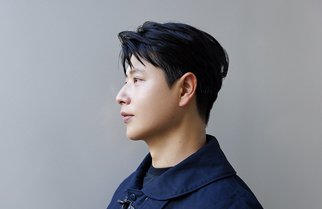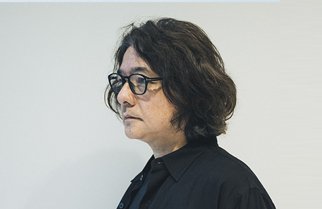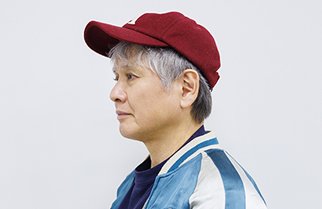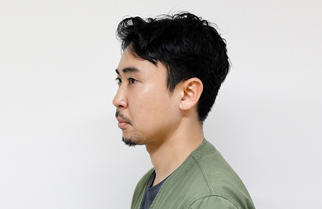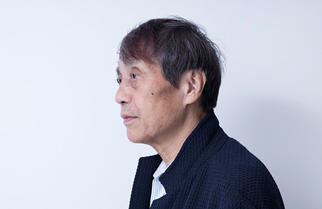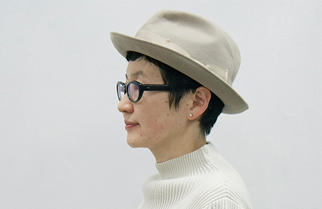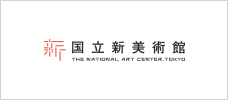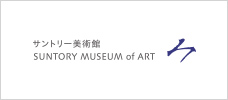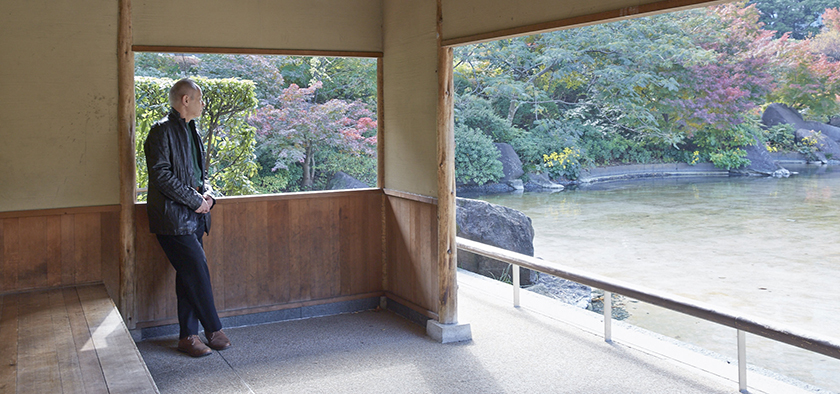
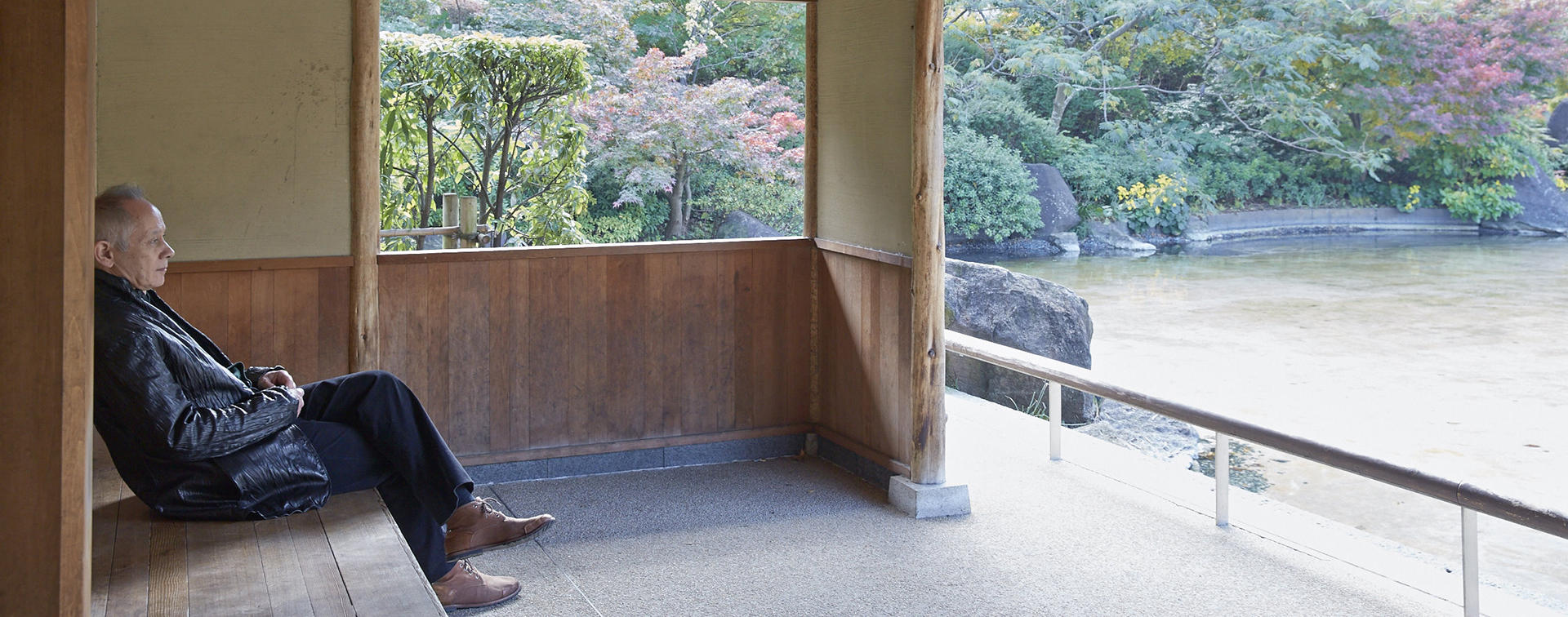
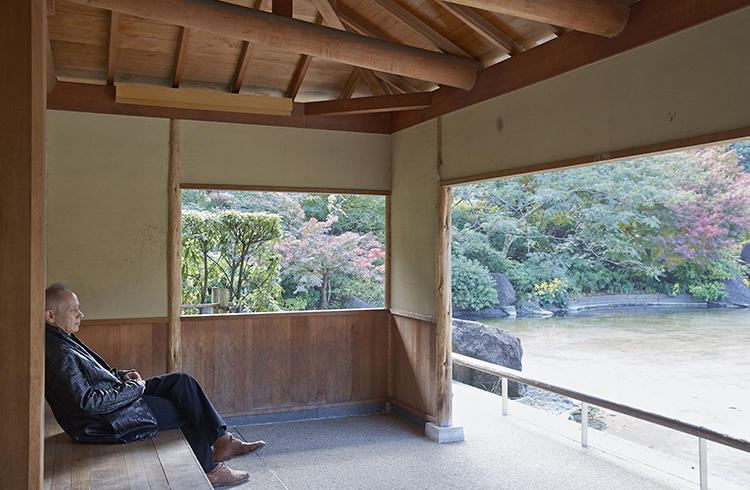
Thoughts on Roppongi , Tokyo , music and the media
Hopes for a culture center in Roppongi
The text below is not a transcript but a translation of the interview held in Japanese. Peter Barakan came to Japan in 1974 and worked in the music industry before becoming a well-known DJ and broadcaster. Through radio programs, books and music events, Barakan continues to inform the public about good music. Barakan used to work in Roppongi and still visits the area every week. We asked him about Roppongi's past, present and future and his thoughts on music and media.
In the early '80s, Roppongi had the nicest atmosphere
I've been doing a radio program in Roppongi for about 9 years. Aside from work, I come to Roppongi to see the shows at Billboard Live Tokyo and Ex Theater Roppongi, and also to visit the art museums. I used to work for YMO (Yellow Magic Orchestra); in the early '80s, their office was in Nogizaka, so this is an area I commuted to every day.
In those days, there was the live house Inkstick, and the Ryudocho neighborhood on the other side of what is now Tokyo Midtown was a really lively place. In 1982 and 1983, Roppongi was an area with the nicest atmosphere in Tokyo. It was an innovative area with [the record shop] Roppongi WAVE and what could be called a "club culture." Record shops may no longer be popular but we now have the National Art Center, Tokyo and 21_21 DESIGN SIGHT, so I think the cultural aspect of Roppongi remains very much intact.
Since Tokyo Midtown was built, the area on this side has become very chic and elegant. But a seedy atmosphere continues to pervade the area on the opposite side. It seems as if Roppongi is divided by the intersection into two completely different areas - the area around Tokyo Midtown and the area on the other side of the intersection have such contrasting atmospheres. I think something needs to be done about the other side if we want to create a better future for Roppongi. (laughs)
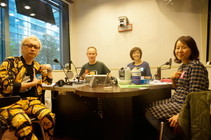
Tokyo Midtown presents The Lifestyle MUSEUM
A radio program sponsored by Tokyo Midtown. Barakan interviews people from all kinds of fields about their values and lifestyles. Airs every Friday from 18:30 to 19:00. The photo is of Barakan with creator Michihiko Yanai in the radio studio. Among the topics Yanai talked about during the program was the "furusato" (hometown) badges he made for Roppongi Art Night in a "idea realization project" held by Roppongi Future Talks.
A club to enjoy both food and music
With regard to music which is a genre I know most about, I'm hoping that a club will be built in Roppongi or elsewhere in Tokyo where adults can have laid-back fun. The kind of jazz club I have in mind is Bimhuis in Amsterdam.
When you enter Bimhuis, there's a bar and restaurant on the right and the performance space on the left. The hall is semicircle-shaped and the stage for the performers is at the lowest level below the steps. You can get a good view of the performers and the acoustics are fairly good too. If you want to drink or eat, you go to the bar on the right, and if you want to enjoy both the food and the show, you can come early to have a meal and then go down to the performance space.
Sometimes, when you want to focus on the music, the sounds that come from eating can be distracting. In Japan, there are very few clubs with separate spaces for eating and listening to music; at the clubs like Billboard Live TOKYO, Blue Note or Cotton Club, people dine and listen to the music in the same space. So when I went to Amsterdam's Bimhuis, I thought, "This is it!"
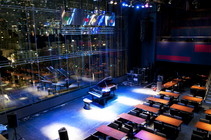
Billboard Live Tokyo
A club and restaurant at Tokyo Midtown on the Garden Terrace on the fourth floor. The restaurant offers full course dinners by first-rate chefs. A wide range of musicians from both Japan and abroad come to perform, and visitors can enjoy live shows while dining and drinking. There is a three-story high atrium, and the view of the city behind the stage is stunning, particularly at night.
Tokyo could do with nice shabby bars and clubs
Tokyo also lacks bar-cum-clubs that have a nice, shabby feel. I recently went to a bar in New Orleans called Maple Leaf. There's a long bar counter on the left, and on the other side of the wall is the performance space. The bar and the performance space are connected, but nonetheless separate. The atmosphere is more laid-back than Bimhuis, but I loved it.
In Tokyo, there's a tendency to build sleek bars, but I wish we could have at least one place where people can casually drop by and enjoy music at low prices. In Yokohama, there's a bar called Thumbs Up which has the ambience of an American South bar. There are live houses like that in Koenji and Shinjuku as well, but they're all very small. Maybe it's difficult to get larger spaces because of the high rents in Tokyo.
By the way, there's a canal flowing by Bimhuis, and the view from the windows is pretty awesome. It would be great to have a club like Bimhuis near Warehouse Terrada in Tennozu. I'm wandering off the topic of Roppongi though. (laughs)

Neither Japanese or English, but a Londoner
People often ask me, "Barakan-san, are you Japanese?" but I've never linked my identity with a country. A year after graduating from college, I came to Tokyo and I've been living here since, but I'm not Japanese and I'm not British. If pressed, I would say I'm a person from London. London is just about the only place in Britain I know - I mean, I went to Liverpool for the first time this summer. (laughs)
I've lived in Tokyo for 42 years, so I suppose I do like Tokyo. But when you live here, you get to see everything - both its good and bad aspects.
One of my favorite spots in Tokyo is the area from Ginza to Nihonbashi where the Chuo Dori runs through. The street is straight and neatly lined with buildings, and the landscape seems to me to be the quintessence of the city. Other places I like are the downtown areas such as Asakusa where the atmosphere is candid. Of course there are some nice streets in downtown, but the biggest appeal is the friendliness of the people.
The cold atmosphere in Tokyo
I'm doing a program called "Japanology Plus" on NHK World, and I get to go to all kind of places to interview people. Yesterday, we went to a small sweet factory in Machiya that has been making the same sweets for decades. The people there were so friendly. These days, when I use the trains, I often feel that Tokyoites are suffering from stress and have lost their warmth. But on my occasional visits downtown, I get the impression that people are doing things in a more human way. I wish we could somehow get that human warmth back in areas like Roppongi.
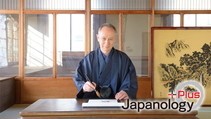
Japanology Plus
A TV program targeted at an international audience that aims to show the many facets of Japan from Mt.Fuji to ramen. In each show, Barakan talks with experts from various fields, and the viewer is informed on topics such Japan's nature, traditional arts, cuisine and technology. Airs on NHK BS1 every Tuesday from 3:00 to 3:28.
I no longer live in London so I don't know for sure, but I have a feeling that the atmosphere in London may be a little bit warmer. The central part of London is fairly compact, and you can walk around it. In contrast, the central part of Tokyo is much bigger and even though I've lived here for 42 years, there are so many places I haven't visited yet. I would probably be right in guessing that none of us here in this room has got off all the stations on the Yamanote Line.
Tokyo is brimming with people. The other day, a fan of the radio program said he was coming to Tokyo and wanted to meet me. We agreed to meet near Shinjuku station but he got lost, which was perhaps inevitable. Forty years ago, when I'd just come to Japan, I became lost at Shinjuku station too, and was in a panic. (laughs)
A city that is easily carried away
I feel that Tokyo is a city that tends to be swayed by the media - it doesn't seem to be firmly grounded. Maybe that's the biggest difference between Tokyo and London. There are times when I get the sense that Tokyo has lost its footing and is being carried away.
When we look at world affairs, many unexpected things are happening such as Britain leaving the EU and Donald Trump becoming president. Both phenomena are the outcome of deep dissatisfaction and hopelessness felt by people who don't live in the big cities. It makes me wonder about the future of Japan and Tokyo.
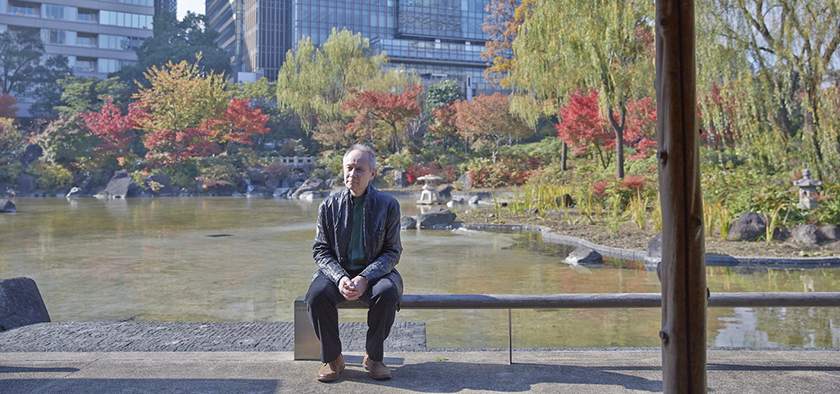
The pleasant pastime of listening to music with other people
There's an event called "A Taste of Music" that I hold from time to time; it's a sort of DJ event where I do what I usually do on radio programs but in front of an audience. Surprisingly, a lot of people come to the event. I think it's because people appreciate good music played on good audio equipment and it's pleasurable to listen with other people.
It's possible to enjoy music by oneself by sitting in front of the computer, but sometimes, that isn't satisfying. We have an urge to appreciate things with others. It's probably an instinctive thing that humans have.
The drop in sales of CDs and the shift to music streaming is a worldwide trend; there's no doubt that this trend will also take hold in Japan. It makes sense in today's world. It's a reality we have to accept and there's no use in lamenting the situation. All the same, I must say that it's not much fun doing everything on the computer screen.
The newness of analog records and albums
The way people listen to music has changed. In the past, people listened to the whole album, but now they listen to particular songs. I think that when the medium changed from LPs to CDs, the value of the album was diminished. Both the A-side and B-side of an LP record has a playing time of around 20 minutes, which is appropriate since it's about the same length a person can keep concentrating.
It's not too hard to fill 20 minutes of one side of an LP with music, but it's much harder to make music for a CD that plays for an hour. And with a CD, you can easily skip the music you don't want to listen to. That raises the question of whether it's really worth going to the trouble of assembling the music. CDs have been around for more than 30 years now; I suppose it's inevitable that people no longer treat CDs as albums.
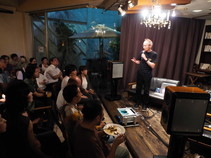
A Taste of Music
An event for listening to music on finely-tuned high-end audio. Barakan serves as DJ and plays music that he recommends. It came about from the web magazine of the same name where Barakan makes music recommendations. The event has proved popular with music fans and is held regularly.
http://www.a-taste-of-music.jp/
On the other hand, analog records are regaining popularity recently. Perhaps young people, who have never listened to records before, find it new to appreciate music in the form of records and albums.
The dream culture center I have in mind
It would be nice to have a facility that is like a culture center, consisting of a bar, restaurant and live house that I mentioned earlier, as well as a movie theater. I think it's important to see live performances and watch movies, and be exposed to things that you don't normally experience in everyday life.
When I was a college student, I often went to the National Film Theater in London which was always showing movies from all kinds of eras. You had to become a member, but the membership fee was really cheap. The National Film Center in Kyobashi is similar, but being a state-run facility, it's a bit conservative.
I have nothing against services like Netflix, but I do feel that a memorable movie experience is one which you have in the movie theater, where the sound is good and you are watching the big screen in the dark with other people. With a facility of the sort I have in mind, all kinds of interesting projects could be held; for instance, live performances could be held on the same theme as the movies being shown. It would be meaningful to have such a facility in a place like Roppongi in the heart of the city.
The loss of a trust between the media and public
As you know, the wealth gap in society is a serious problem now. There's a similar sort of inequality in the music world. A handful of artists are selling tremendously well, while the rest - which is like 99% - are almost unknowns. Maybe it's an exaggeration to put it at 99%, but the gap is certainly getting bigger, and the artists we read or hear about in the media tend to be just the 1%.
The media industry is an industry after all, and I know they have to make money, but the way they are doing things ultimately has bad consequences for the industry itself. It's such a pity that we have this negative cycle. I suppose the biggest problem is that the relationship of trust between the media and the public has gradually disappeared.
The media, and record companies - everything has become so commercialized and dominated by mass-produced music. This is not something that is happening only in Japan - it's a worldwide trend. That's why when I put music on the radio waves, I select music that I personally think are worth listening to; I don't give a thought to whether the music is likely to sell or not, or whether it is topical or well-known or anything like that. I also try to give as much information as I can on concerts.
Giving information on a wide range of music
When Donald Trump was elected U.S. President, the comedian John Oliver remarked that the media needs to properly play the role of watchdog. He was stating the obvious, but the media does have an obligation to be watchful and to prevent things from going too far. There are big issues not only in the political world, but also in the media industry that need to be addressed.
As one who works in the media, I'm always conscious of how I impart information. For instance, all kinds of concerts are held every day in Tokyo, and the alert enthusiasts probably go and enjoy many of them. But I think there are many people who are interested, but miss the opportunity to go to a concert because they didn't know about it. I myself have missed quite a lot of performances by artists I would have liked to have seen.
Of course, all the information is up on the Web, but people often don't know how to find it. So I think the media needs to properly relay information on a more diverse range of music. Roppongi Future Talks tells people about the design and art in Roppongi. I hope that similar steps will be taken in the music world.
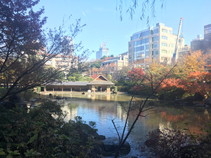
Hinokicho Park
A park run by Minato ward that lies on the eastern side of Tokyo Midtown. In the Edo period, it was the site of a "shimoyashiki" or second home of the Mouri family of the Choshu clan. The garden was famous for its panoramic view of the streets of Edo. The name "Hinokicho" is derived from "Hinoki yashiki" - the name given to the house because it was surrounded by many "hinoki" cypress trees.
Editor's thoughts
The main photos for the interview were taken at Hinokicho Park which lies next to Tokyo Midtown. The leaves on the trees were just changing color, creating a pretty landscape. During the photo session, a fan approached Barakan-san and asked him in English "Are you Peter Barakan?" Smiling, Barakan-san shook hands with her. (edit_kentaro inoue)




